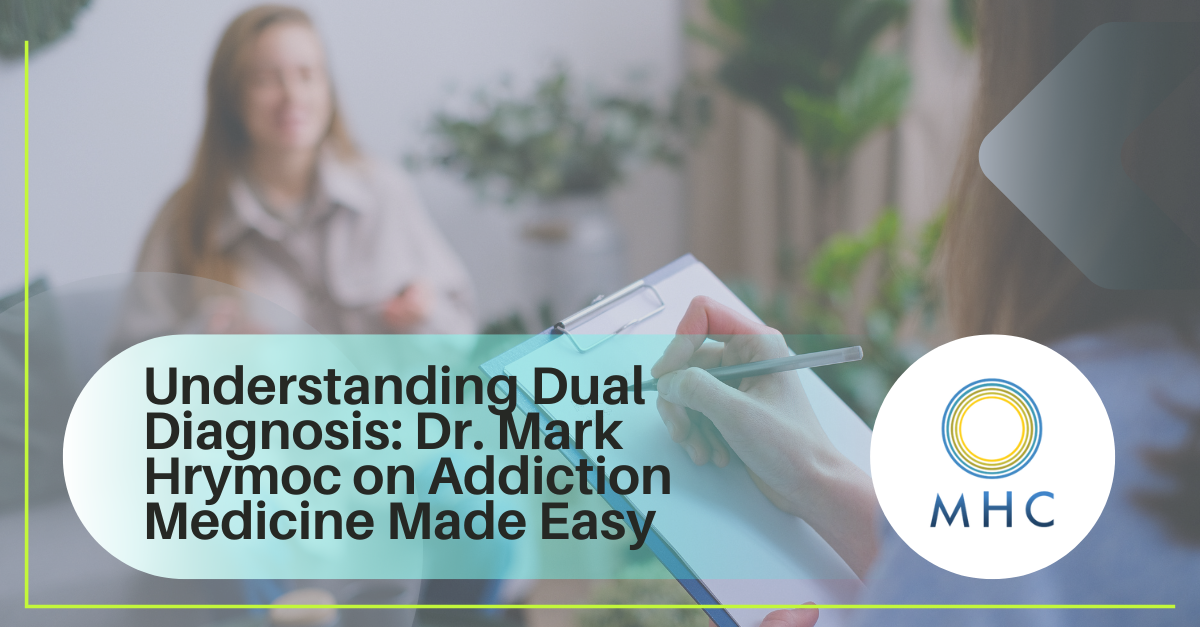When mental health challenges and addiction overlap, recovery can become especially complex. In the podcast Addiction Medicine Made Easy, hosted by Dr. Casey Grover, Mental Health Center’s co-founder and addiction psychiatrist Dr. Mark Hrymoc joined the episode “Dual Diagnosis: Why Treating One Without the Other Never Works” to discuss why integrated care is essential for lasting healing.
The Connection Between Mental Health and Addiction
As Dr. Hrymoc explains, many individuals struggling with addiction are also managing underlying mental health conditions—often without realizing it. This overlap, known as dual diagnosis or co-occurring disorders, affects a large portion of people in treatment.
In fact, an estimated 50–80% of patients with addiction also have PTSD or significant trauma histories. Many turn to substances not to seek euphoria, but as a form of self-medication to ease emotional pain, anxiety, or intrusive memories.
Treating Both Conditions—Together
Dr. Hrymoc emphasizes that successful recovery depends on addressing both conditions simultaneously. Treating addiction without acknowledging depression, PTSD, or ADHD often leads to relapse and frustration. Similarly, focusing solely on mental health without managing substance use can block progress.
During the episode, Dr. Hrymoc shared several effective and evidence-based treatment strategies, including:
- SSRIs such as Zoloft and Lexapro as first-line treatments for anxiety disorders and PTSD
- Prazosin for managing PTSD-related nightmares
- Non-addictive anxiety medications like propranolol, clonidine, and gabapentin
- Non-stimulant ADHD options such as Strattera, Qelbree, and Wellbutrin, especially important for patients with comorbid addiction
- Sleep support through medications like trazodone, mirtazapine, quetiapine, and newer DORA options
- Emerging therapies, including ketamine treatment, for individuals with treatment-resistant depression or suicidality
Each of these tools supports a parallel treatment approach—helping patients heal both the mind and the body without worsening substance dependency.
Why Integrated Care Matters
At Mental Health Center, Dr. Hrymoc and his team believe in meeting patients where they are—addressing addiction and mental health together with compassion and expertise. As he shares in the podcast, “We treat the person where they are,” a philosophy that underpins every aspect of his clinical work.
For anyone navigating dual diagnosis—either personally or within their family—Dr. Hrymoc’s discussion offers clarity, empathy, and hope.
🎧 Listen to the full episode:


